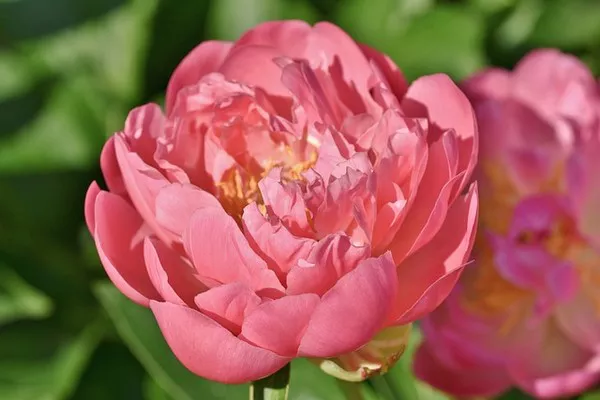Flowers have long held a special place in human culture, carrying profound symbolism that transcends mere aesthetics. Among the myriad blooms that grace our gardens, the peony flower stands out as a symbol of elegance, beauty, and cultural significance. Originating in Asia and embraced by cultures worldwide, the peony’s rich symbolism has evolved over centuries, captivating hearts with its lush petals and enchanting fragrance.
Historical Roots:
The peony’s story begins in China, where it has been cultivated for over 2,000 years. Revered for its stunning appearance and intoxicating scent, the peony quickly became a symbol of wealth, honor, and prosperity in Chinese culture. The flower was associated with nobility and high social status, often adorning the gardens of emperors and aristocrats.
Over time, the peony’s popularity spread across Asia, finding a place in Japanese, Korean, and Tibetan cultures. Each region infused its unique meaning into the flower, creating a tapestry of symbolism that transcends borders.
Love and Romance:
One of the most universally recognized meanings of the peony is its association with love and romance. In both Eastern and Western cultures, the peony is considered a symbol of love, passion, and deep affection. Its lush, full blooms, often compared to billowing clouds, evoke a sense of romance and beauty that has captivated poets and artists throughout history.
In Chinese tradition, the peony is often referred to as the “king of flowers” and is a common motif in love stories and folklore. Its presence in weddings symbolizes a happy and prosperous marriage, while its petals are believed to bring good fortune to newlyweds. In Western cultures, the peony is a popular choice in bridal bouquets, representing not only love but also a happy and fulfilling marriage.
Prosperity and Wealth:
The association between the peony and prosperity is deeply rooted in Chinese culture, where the flower is regarded as a symbol of wealth and good fortune. The lush and opulent appearance of the peony is seen as an embodiment of affluence and prosperity, making it a favored motif in art, textiles, and other forms of decoration.
In Feng Shui, the peony is believed to attract positive energy and abundance, making it a popular choice for home decor. The flower’s vibrant colors and auspicious symbolism have also led to its inclusion in traditional Chinese New Year celebrations, symbolizing a wish for prosperity and good luck in the coming year.
See Also What Does A Peony Flower Look Like? A Visual Feast
Femininity and Nobility:
The peony’s association with femininity is deeply embedded in its symbolism. The flower is often seen as a representation of the feminine ideal, embodying qualities such as grace, beauty, and gentleness. In Chinese art and literature, the peony is frequently used to symbolize the idealized image of a woman.
Moreover, the peony has historically been associated with nobility and high social standing. In ancient China, the flower was reserved for the emperor and his court, signifying prestige and honor. Over time, this association with nobility has continued, with the peony becoming a symbol of grace and elegance in various cultural contexts.
Transformation and Renewal:
The peony’s life cycle, with its brief but spectacular bloom, has also contributed to its symbolism of transformation and renewal. In Eastern cultures, the fleeting nature of the peony’s bloom is seen as a metaphor for the transience of life and the impermanence of beauty. Despite its short-lived splendor, the peony’s ability to return each year is a reminder of nature’s cyclical renewal.
In Chinese literature, the peony is often used to convey the idea of perseverance and resilience in the face of adversity. Its ability to bloom in harsh conditions symbolizes the strength to overcome challenges and embrace the opportunity for personal growth.
Conclusion:
The peony flower, with its multifaceted symbolism, has woven itself into the fabric of cultures worldwide. From its origins in ancient China to its adoption in Western societies, the peony stands as a timeless emblem of love, prosperity, femininity, and renewal. As we continue to appreciate the beauty of this exquisite bloom, we also honor the rich tapestry of meanings it carries, connecting us to the cultural heritage and timeless wisdom of those who came before us.


